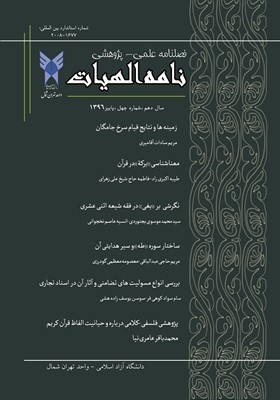A Comparative Study of the Rulings (Usury) in Islam and Judaism
Subject Areas : Nameh Elahiyatsareh qasemlu 1 , yahya Sabbaqchi 2 , Tayyebeh Akbari Rad 3
1 - PhD student in Quranic and Hadith Sciences, Islamic Azad University, North Tehran Branch
2 - Faculty member of Sharif University of Technology
3 - Faculty member of Islamic Azad University, Tehran North Branch
Keywords: Islam, Judaism, The rules of usury,
Abstract :
Among the discussions of Islamic economics, usury is of special importance because on the one hand it is one of the main differences between Islamic economics and capitalism and on the other hand its presence or absence can play a decisive role in economic policies. Where the majority of capitalist economists cite it as a factor in the allocation of resources and economic equilibrium. In the present article, the rules of usury in Islam and Judaism have been studied comparatively and while the semantics of usury have been studied analytically, the similarities and differences between these two schools have been studied in the following cases: Semantics of usury, the issue of usury in Islam and Judaism , The philosophy of the sanctity of usury, the attitude of Muslims and Jews towards the prohibition of usury, which is derived from what has been studied that usury is forbidden in both religions of Islam and Judaism with the detail that Jews commit adultery with any non-Jew, unconditionally They consider it permissible, but in Islam, according to most scholars, it is permissible to take usury from a military infidel.
_||_


